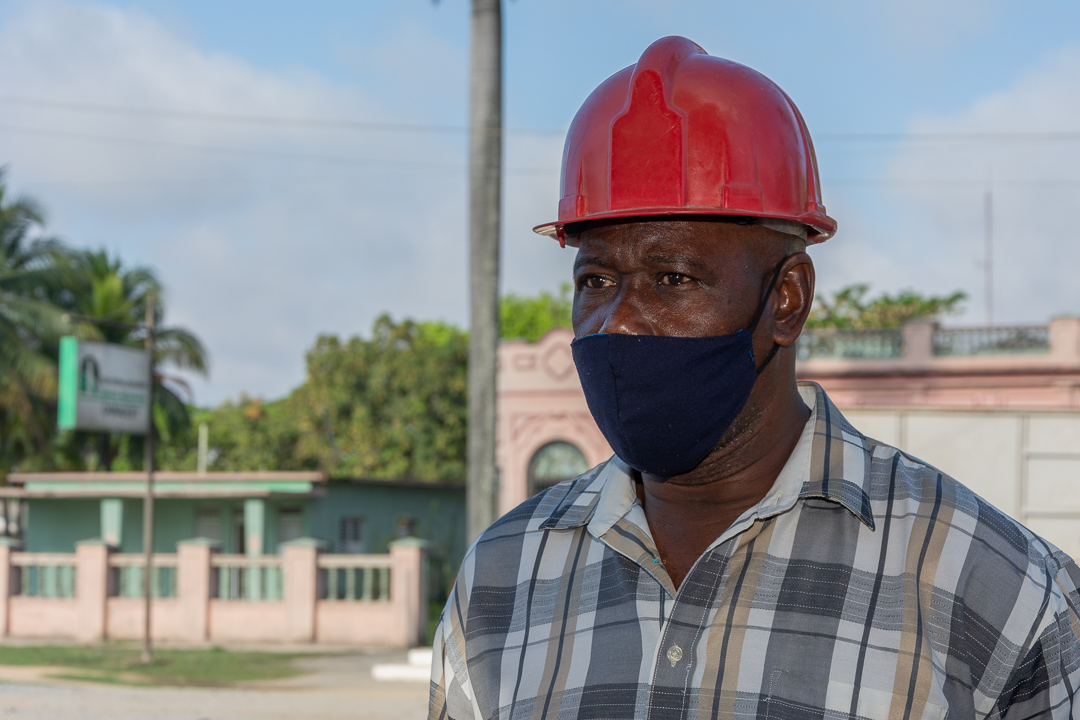CAMAGÜEY.-As a worker in the sugar industry, Francisco Poll Fiz, has been elected by his fellow workers to represent them in three congresses of the Communist Party of Cuba.
Now, he participates in the great eighth appointment, until this April 19th. In all of them he has presented the projects and ideas of how the socialist enterprise can be and needs to be more productive and efficient.
Since August of last calendar he has served as director of the Ignacio Agramonte refinery in Florida, but at a very young age he contributed to raising the foundations of the only Sorbitol Factory in Cuba, almost in the backyard of his current sugar mill. For this reason, he always raises in communist congresses the desire that Camagüey sorbitol and its derivatives, and the production of raw and refined sugar, be sufficient for national consumption and exports that the country's economy needs so much, especially in times of imperial siege and pandemic.
From his parents, Francisco Poll and Benicia Fiz, descendants of Haitians, he learned of the discriminatory social and economic times in which his family lived badly, but he - luckily - was born 56 years ago with Fidel's Revolution and that is why today the experienced chemical engineer spares no hours or effort to provide his knowledge in both aspects of the sugar industry, embedded in the same Base Business Unit (UEB).
“My peasant family always dedicated themselves to hard sugarcane tasks: my mother worked on a crane in the old El Quirche sugarcane colony; my father worked in that area, in the area known as La Tumba and in different cane fields of the current municipality of Carlos Manuel de Céspedes, he was a tireless and revolutionary sugarcane leader. I did not know another time that was not this, the socialist of my solidarity and internationalist Cuba that will never be comparable to the one my parents suffered, that is why I am a communist ”.
Francisco Poll Fiz does not talk to much: he likes to do more than to say, but he does not shut up before anything or anyone when it comes to defending the Revolution and advancing the work and well-being of the workers and the economy.
That is why on the Monday of our visit, with his heart in the refinery and one foot almost in the Eighth Congress, he waited in his work setting for the conversation with the Adelante team, but not before regretting that the sugar refining was stopped that time, due to lack of water from the Caonao conductor.
He explained that the previous year despite converting "Ignacio Agramonte" more than 50,000 tons of crude into refined of acceptable quality, brown sugar, raw material of the final production, was not good and contributed, together with the bagasse shortage, to spend more fuel oil than planned in previous processes. However, the saving of fossil fuel, due to the use of biomass (bagasse, marabou and others), and the quality of refining, characterize this AzCuba group among the most efficient and productive of its kind in Cuba.
“This year - said Poll Fiz - we are going to exceed those efficiency indicators, because we have carried out vital repairs in the industry, mainly in the boilers and centrifuges that allow us to produce 340 tons and more per day of the white candy. That is the commitment that we will take to the Congress of Party to ratify the continuity of the Revolution ”.
He also expressed that much remains to be done at the refinery: improve the floors, ceilings and pending lighting and all areas to maintain the safety of production.
On the verge of saying goodbye, he showed us part of the inactive technology of the former crude production of that factory and, far from transmitting pessimism, he smiled to ensure that as in the Brazil and Panama mills, the country will be able to invest in their reincorporation to the coming harvests.
Of course, before it will be necessary to sow and rescue numerous cane fields for which long before and almost like slaves, his father and work colleagues, defended the right to eat and live of the exploited cane cutter and cane workers in the legendary Camagüey.
Translated by Linet Acuña Quilez



